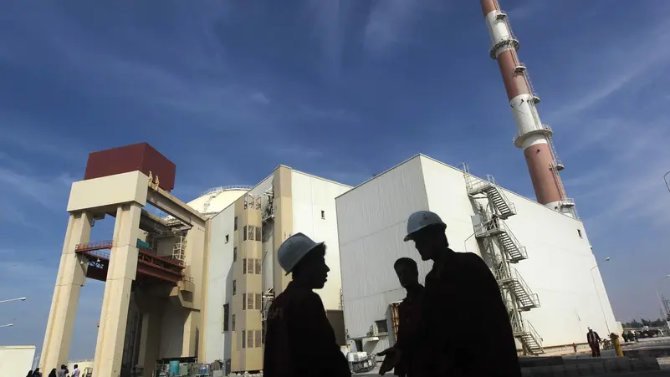
- ARAB NEWS
- 14 Jul 2025

Negotiations are a constant bargaining process. If they stall, this means that there are factors that must be overcome to reach the desired agreement. Israel is a central factor in the negotiations between the P5+1 world powers and Iran. The halting of the negotiations and the difficulty of persuading Iran to make concessions, especially regarding its insistence on having a high level of uranium enrichment, garners many strategic advantages for Tel Aviv. It can persuade the nations negotiating with Iran that Tehran is not trustworthy. This should be the basis on which the whole world deals with Iran.
In addition, Israel is admonishing many countries in Europe and addressing the political leadership in the US, saying that there are no moderates in Iran who care about preserving a good relationship with the West. Israel aspires to convince the world that, even if any legally binding agreement is reached, Iran will have a different interpretation of it. Tel Aviv hopes that the UN and officials working for the International Atomic Energy Agency can be convinced that it is difficult, if not impossible, to fully monitor Iran’s nuclear program.
Many countries actually agree with Israel that Iran’s regional misbehavior will never change — that it will continue funding and abetting the crimes of the Houthis, Hezbollah and its militias in Iraq, while retaining its position and influence in Syria. Meanwhile, Iran’s support for terrorism enables Israel to keep pressuring the US that Tehran should be kept on its list of state sponsors of terrorism.
Militarily, Israel will increase its cooperation with the American Department of Defense. Moreover, the delay in reaching an agreement over Iran’s nuclear program allows Israel to collect more information about Iran. It can share this information with the intelligence community in the US. Israel will try to bring evidence that Iran is attempting to procure a nuclear weapon.
The grounds upon which Israel is making its claims against Iran are built on Tehran’s attempts to destabilize the Middle East and spread terrorism all over the globe.
Since there is currently no agreement in sight between Iran and the P5+1, Israel can feel confident. And even if there is ultimately a deal over Iran’s nuclear capabilities, it will not happen imminently and Israel will have adequate time to carefully study its potential consequences.
Tel Aviv aspires to convince the world that, even if any legally binding agreement is reached, Iran will have a different interpretation of it.
Maria Maalouf
No deal with Iran would entail a fair degree of secret diplomacy. For sure, Israel would have a big stake in such espionage work. Most likely, Iran would be forced to make more announcements about the arrest of Iranian citizens working for Israel to sabotage the country from the inside.
Nevertheless, it is not clear how much influence Israel will have over Russia and China to dissuade them from supplying Iran with the technology it needs to help it enhance its nuclear capabilities. Moscow and Beijing may be united with Israel in rejecting any attempt by Iran to have a nuclear weapon for military purposes. However, Russia and China are continuing their cooperation with Iran. This is equal to a life-support system to sustain the Iranian regime. Undoubtedly, many of the technologies Iran has received from Russia and China have both civilian and military applications. But Israel cannot thwart the Iran-China-Russia axis from being a real bond of cooperation among these three countries.
Furthermore, Israel faces two contradictory situations. It tries to project the image of a nation that is not intimidated by Iran. However, many officials have expressed their fear of seeing Iran becoming a civilian and military nuclear power.
In an interview with The New Yorker magazine late last year, the former intelligence director of Mossad and, until recently, the head of the Political-Military Bureau at the Israeli Defense Ministry, Zohar Palti, said: “The problem with Iran’s nuclear program is that, for the time being, there is no diplomatic mechanism to make them stop. Iran is no longer afraid. We don’t want to reach a point where we will have to ask ourselves how Iran was allowed to enrich to 90 percent.”
Israel is expected to fully display its hostility toward Iran. There are at least two postulates that Israel wants to impose on the negotiations with Iran: That Israel’s security is a factor in these talks and that America has to reveal to Israel all the details of any agreement it enters into with Iran.
However, there are limits on what Israel can enforce on other countries when they approach Iran. America will not allow Israel to strike against Iran. This would endanger the American troops deployed in Iraq and Syria.
Israel’s attitude is one of being anxiously careful not to squander any opportunity to reach a consensus with America, France, Germany and the UK over Iran’s nuclear ambitions. Meanwhile, Israel knows that these countries still adhere to the view that it is strategically unnecessary to reject holding future rounds of negotiations with Iran to subject its nuclear program to greater international scrutiny.
• Maria Maalouf is a Lebanese journalist, broadcaster, publisher and writer. She has a master’s degree in political sociology from the University of Lyon.
Twitter: @bilarakib